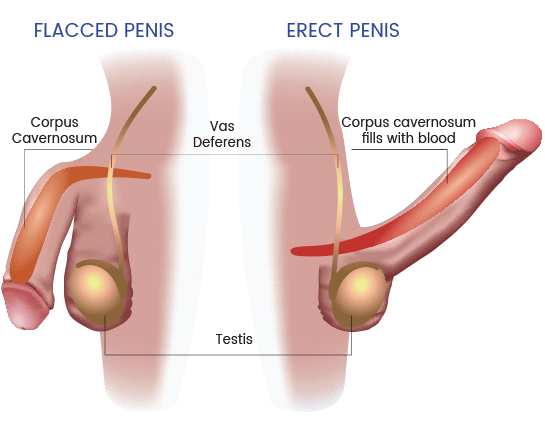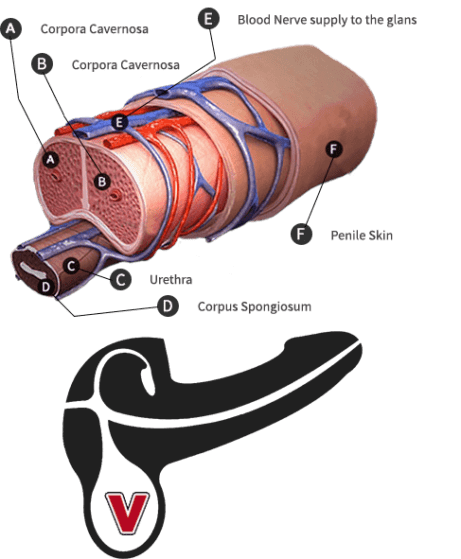What is Omega-3:
Omega-3 fatty acids are polyunsaturated essential fatty acids. The three main omega-3 Fatty acids are alpha-linolenic acid (ALA), docosahexaenoic acid (DHA) and eicosapentaenoic acid (EPA). Alpha-linolenic acids (ALA) are found in plants. Omega-3 and omega-6 compete for the same receptors in the body so a ratio of (1:1) is beneficial. These FA have many health benefits, they are structural components of the cell membrane and provide energy sources. Supplementation with omega-3 fatty acids results in improvement in cardiovascular health, immune system, and exercise performance.
Science behind omega-3:
DHA and EPA are building blocks of the immune system and act as a precursor of inflammatory mediators such as prostaglandin and leukotriene. Leukotrienes are involved in the activation of leukocytes, white blood cells that fight with any foreign body and pathological condition. Prostaglandin regulates the immune system and omega-3 fatty acids act as anti-inflammatory agents and decrease the production of cytokines and reactive oxygen species. They help in blood clotting, build up the cell membrane and affect receptors of the cell membrane for the better flow of nutrients and wastes. The long and flexible structure of the cell membrane prevents the entry of wastes inside the cell.
Omega-3 fatty acids help sexually too by increasing the level of dopamine in the brain that trigger sexual arousal. These are precursors of sex hormones in men and women both. Omega-3 has many health benefits and lower the risk of depression, dementia, heart problems, and arthritis. It decreases LDL and cholesterol and converts it into good body fat (HDL). It decreases blood pressure also.
?
After vigorous research and uses, reading many reviews and researching scientific papers, our team came up with 2 food supplements which have rich potent amount of essential omega 3 fatty acids with vitamin D, Krill Oil. Read our bible on these topic below and get illuminated before making any purchases!
Our Recommendations: Krill Oil or Cardio/Omega
Valid from 17/10/2019, Expires 31/12/2020
Valid from 26/12/2019, Expires 30/06/2020
Our Health Bible Starts! Please read.
What are Fatty acids:
Fatty acids are one of the essential components of the body and have many important functions for maintaining life. Fatty acids are involved in oxygen transport, brain functioning, developing strong tissues and organs, improving the immune system, providing energy, lowering cholesterol and reducing the risk of heart diseases, and in composition of hormones and lipids. These are the healing agents and provide building blocks to our body to make prostaglandin that play a role in decreasing or increasing inflammation.
Fatty acids are of two types saturated and unsaturated fatty acids. Saturated fatty acids such as palmitic acid and stearic acid contain a single bond between carbon atoms and are healthy at a certain range because if there is an increased amount of saturated fatty acids then it can increase the level of low-density lipids (LDP). The acceptable range of LDL is 100 to 129mg/dl. Higher level of LDL increase cholesterol level which in turn increase the risk for heart disease and stroke.
Know about Omega-3-6-9:
Unsaturated fatty acids are of two types monounsaturated fatty acids and polyunsaturated fatty acids. Monounsaturated fatty acids contain one double bond between carbon atoms and include Oleic acid (Omega-9). Omega-9 are non-essential fatty acids and can be produced inside the body. Omega-9 has several benefits for health.
Polyunsaturated fatty acids include Omega-6 (linoleic acid) and Omega-3 Alpha-linolenic acid (ALA) and its derivatives Docosahexaenoic acid (DHA) and Eicosapentaenoic acid (EPA). Omega-6 can be converted into longer omega-6 fat arachidonic acid (ARA) which produces pro-inflammatory eicosanoid. The recommended omega-3 and omega-6 ratio in the diet is 1:4. Omega-6 is used as a rich source of energy for the body. Polyunsaturated fatty acids are essential fatty acids (EFA) and are provided from outside of the body through our diet as our body cannot make these EFA. These are called polyunsaturated due to the presence of two or more double bonds between carbon atoms within a fatty acid chain.
Omega-3 fatty acids help to reduce blood pressure and manage and prevent heart diseases. Omega-3 fatty acids are good fatty acids and help to reduce blood cholesterol levels. It convert LDL to HDL which are good fats. Saturated fatty acids produce prostaglandin that is inflammatory and polyunsaturated fats like Omega-3 produce prostaglandin that decrease inflammation. We should have a balance of these fatty acids. Because both processes are important for the body.
[tcb-script src=”https://healthtrader.com/affiliates/script/cusotome_froogaloop2.js”][/tcb-script]
Omega-3 fatty acids benefits:
Omega-3 fatty acids are incredibly beneficial for heart, brain health, and many other body functions. Why our body needs omega-3 fatty acids, here we will look at the benefits of Omega-3 fatty acids that are scientifically approved.
-
Fight autoimmune diseases:
In autoimmune disease, our immune system recognizes its body cells as foreign bodies and start attacking them and destroy own body cells. The best example of autoimmune disease is multiple sclerosis and type 1 diabetes. In type 1 diabetes immune cells destroy insulin-producing healthy cells of the pancreas and thus unable to produce insulin resulting in an abnormal rise in blood glucose level.
Taking enough Omega-3s in early life can help reduce the risk of autoimmune diseases and used in the treatment of ulcerative colitis, Crohn’s disease, rheumatoid arthritis, psoriasis, and lupus.
-
Brain health and Alzheimer’s disease:
Omega-3 is proved to be beneficial in the early stages of Alzheimer’s disease and mental illness due to aging. With increased age brain function tends to decline but having omega-3 supplements can improve brain health.
-
Decrease inflammation:
Inflammation is a natural response of the body against infection or some injury. It has benefits for our body but sometimes inflammation gets chronic and persists even without infection or injury.
Omega-3s proved to be beneficial in fighting against inflammation by decreasing the level of inflammatory substances like eicosanoids and leukotriene. Chronic or long term inflammation causes heart problems and can cause even cancer.
Omega-3 supplements reduce the risk of cardiovascular illness, rheumatoid arthritis and cancer as a higher intake of omega-3 fish oil reduces inflammation.
-
Reduce heart problems:
National center for complementary and integrative Health (NCCIH) has found that omega-3 fatty acids lower the level of triglycerides. Triglycerides are fats that are harmful to health when they are above the normal range and cause heart problems. Medicines containing omega-3 lower triglyceride levels and reduce the risk of heart attack. It is found out that fish-eating communities have lower incidence of getting cardiovascular disease because fish contain Omega-3s. Medicines with omega-3 and other ingredients need approval by U.S food and drug administration (FDA) for treating higher levels of triglycerides but the same does not apply to omega-3 supplements.
Omega-3 reduce cardiovascular problems by following ways
- Reduce blood pressure in patients with hypertension
- Increase the level of good fats “HDL”
- Reduces triglycerides level
- Prevent the formation of harmful blood clots
- Keep arteries smooth and prevent plaque formation that can harden your arteries
- Reduce inflammation
A 2018 study showed that African Americans taking omega-3 supplements have shown to have a 77% reduction in heart attack and stroke.
-
Combat obesity:
Omega-3 supplements help in losing weight and prevent putting weight back on. These decrease the level of cholesterol and triglycerides.
-
Reduce liver fat:
No- alcoholic fatty liver disease is treated by taking omega-3s as these can reduce fat and inflammation in your liver. Non-alcoholic fatty liver disease (NAFLD) is more common than alcoholic liver disease. Obesity can increase the occurrence of NAFLD.
-
Strengthen bone and joints:
Osteoporosis and osteoarthritis are the disorders of the skeleton. Omega-3 fatty acids increase bone strength by increasing the uptake of calcium in the bones. It increase grip strength and reduce bone pain. It has proved to be beneficial in arthritis also.
-
Alleviate menstrual pain:
During menstruation, pain arises in the lower abdomen and lower back and even to thighs and pelvic region. Omega-3 fatty acids proved to be more beneficial than Non-Steroidal Anti-inflammatory Drugs (NSAIDs) like ibuprofen. Women who take omega-3s have mild menstrual pain.
-
Reduce Depression and Anxiety:
Anxiety and depression are common disorders and people taking omega-3 fatty acids have shown to have reduced depression. It fights against nervousness and constant worry. Among the 3 omega-3 fatty acids ALA, DHA, and EPA, Eicosapentaenoic acid (EPA) is found to more effective in fighting against depression.
-
Omega-3 and eye health:
DHA one of the forms of omega-3 fatty acids slows the degradation of the retina, including macular degradation which is the most common cause of blindness in aged people. A study published in investigation ophthalmology and visual science found out that DHA provide visual protection and prevent age-related vision loss in older people.
-
Brain health:
Omega-3 fish oil which is rich in DHA and EPA improves brain health in pregnancy and during early life. Omega-3 fish oil is critical for normal brain function and development during all stages of life but it seems to have more in developing baby’s brain. DHA is found to form 30% of brain cells. Women who take more fish oil supplements or eat fish during pregnancy are found to have babies with higher scores on the test of intelligence and brain function. Lower DHA levels reduce brain size, a sign of accelerated aging and cause loss of memory and deficit in learning.
-
Treat ADHD in children:
Attention deficient hyperactivity disorder is found in children which is characterized by hyperactivity, aggression, inattention, and impulsivity. This behavioral disorder can be treated by omega-3 fish oil which is rich in DHA and EPA and improve task completion and inattention. It takes 4 weeks to have noticeable improvement in ADHD. Omega-3 fish oil have benefit in children only with ADHD and nutritionally support focus and attention.
-
Metabolic syndrome:
A diet rich in omega-3 and monounsaturated fats like omega-6 is beneficial for people with metabolic syndrome. Metabolic syndrome is a cluster of risk factors that increase the risk of diabetes and heart problems like blood pressure, cholesterol level, insulin resistance, low good “HDL” cholesterol, and abdominal fat. Omega-3 fatty acids reduce the symptoms of metabolic disorders by decreasing inflammation, insulin resistance, and heart problems.
-
Mental disorders:
Mental disorders like schizophrenia and bipolar disorders are best treated with omega-3 fatty acids causing a reduction in the frequency of mood swings, violent behavior, and relapses in people. DHA is the structural component of neuronal cell membranes.
-
Prevent Cancer:
Cancer is the uncontrolled growth of abnormal cells and is the leading cause of death in the western world. Omega-3 is found to prevent the occurrence of cancer and its spread to other parts of the body. It decreases the risk of breast, colon and prostate type of cancer and prevent metastasis. People consuming omega-3s have a 55% lesser risk of getting colon cancer.
-
Reduce Asthma attacks:
Omega-3s reduce the risk of asthma in children and young adults. Asthma is characterized by wheezing, cough, chest pain and shortness of breath. Asthma attacks can be very dangerous and thus are treated with omega-3 which reduces inflammation and swelling in your airways of lungs.
-
Improve Sleep:
Sleep disorders in children and obstructive sleep apnea in young adults is due to a lower level of omega-3 fatty acids and can be improved with omega-3 fish oil supplements. Lower level of DHA is associated with lower level of melatonin, depression, obesity, and diabetes. Supplementing with omega-3 can result in lengthy and quality sleep.
-
Beneficial for skin:
Omega-3 protects your skin from sun damage and make it soft, supple and wrinkle-free skin.
EPA in omega-3 prevents the release of substances from your skin at collagen that get damaged under the sun. DHA is responsible for the health of cell membranes of your skin. EPA provides following benefits to your skin
- Reduce premature aging of skin
- Balance hydration and oil synthesis in skin
- Reduce acne
- Prevent hyperkeratinization characterized by red bumps on skin of upper arms
Omega-3 fatty acids have many benefits for your optimal health and must be taken from your diet as these are essential FA and your body cannot make it on its own. One should take fatty fish two times a week or obtain it from other whole-food but if you are unable to take it from food then you may have to consider taking it from omega-3 supplements as it is a cheap and effective way to improve health.
How and where to get Omega-3 from:
Poly-unsaturated fatty acids like Omega-3 and Omega-6 are essential fatty acids which means that our body cannot make these fatty on its own and we need to take it from outside through our diet. There are many foods and oils rich in omega-3. Fish oil is rich in omega-3.
Is Omega-3 Fish Oil?
The natural source of omega-3 is fish oil and fish oil is rich in DHA and EPA. Fish oil is omega-3 as the two key components of omega-3 DHA and EPA are rich in fish oil.
Omega-3 fish oil:
Fish oil is obtained from tissues of oily fish. The amount of omega-3 in fish oil ranges from 18 to 31% but the range varies from specie to species of fish. Fish oil is rich in DHA and EPA, and it also contains vitamin A & D. Most common sources of natural fish oil are cod liver oil, menhaden, herring, sardines, and salmon.
Fish oil can be processed to remove containments such as PCB and mercury. Processed fish oil contains up to 50 to 90% of pure DHA OR EPA and can be available as fish oil capsules. We can call omega-3 as fish oil because fish oil is rich in omega-3.
Foods with Omega-3:
Where are omega-3 found? How to get Omega-3? What are the foods with Omega-3? You must be thinking about these questions. Don’t worry! I will tell you foods rich in Omega-3. Have a look at the following foods rich in omega-3.
Omega-3 high food:
Omega- 3 can be obtained from fatty fish and plant-based foods. Fatty fish is rich in DHA and EPA while the natural source of alpha-linolenic acid (ALA) is plants and must be taken from omega-3 rich vegetables, nuts, and seeds.
Fish sources rich in omega-3:
-
Mackerel:
These are small fatty fish that people commonly smoke and eat during breakfast. These are rich in vitamin B12, selenium and contain 0.59g of DHA and 0.43g of EPA. In western countries, these are mostly eaten because they are delicious and quick to prepare.
-
Salmon:
They are one of the most rich in nutrients fish and contain DHA, EPA, magnesium, potassium, selenium, vitamin B & D. The amount of omega-3 is different in farmed and wild salmon. Farmed salmon fish contain 1.24g of DHA and 0.59g of EPA.
-
Sardines:
These are oily fish and rich in nutrients. It is used as a starter, appetizer, snake or delicacy. It can be available as in cans. One serving of sardines contains 0.45g of EPA and 0.74g of DHA.
-
Shrimp:
It is used both as a component of a meal or as an appetizer. It is rich in nutrients and low in calories. One serving of shrimp contains 0.12g of each of DHA and EPA. It contains anti-oxidants, selenium, vitamin B12, protein, zinc, and calcium, etc.
-
Trout:
It is a freshwater fish and rich in nutrients. One serving of rainbow trout contains 0.44g of DHA and 0.44g of EPA. It is a rich source of potassium, protein, and vitamin D in addition to omega-3.
-
Oysters:
Unlike other seafoods, these provide all the three classes of omega-3. It is a favorite of most people and is being served in restaurants as an appetizer or snake. It contains 0.14g of ALA, 0.23g of DHA and 0.30g of EPA. It is rich in other nutrients as well like zinc and vitamin B-12.
-
Seabass:
It is rich in protein and contains 0.47g of DHA and 0.18g of EPA.
American heart association suggests serving of fatty fish for heart patients as it is beneficial for these patients and lower blood pressure too.
Vegetarian sources of omega-3:
-
Walnut:
Nuts are used on its own, in salad, yogurt, milk, snake bar and is enjoyed by many people. It is rich in alpha-linolenic acid (ALA) and many other nutrients, iron, copper, manganese, vitamin E, fibers and antioxidants. Don’t remove the skin when used as it contains phenol antioxidants.
-
Soybeans:
Soybeans are rich sources of omega-3, fiber and vegetable proteins. It is used as a side dish and a half cup contains 670mg of omega-3. It also contains riboflavin, Folate, vitamin K, magnesium and potassium.
-
Chia seeds:
These contain omega-3 and magnesium, potassium, selenium, manganese. 28 grams of chia seed contain 5060 mg of omega-3. It contains protein and essential amino acids as well.
-
Flax seeds:
So far flax seeds are the richest source of alpha-linolenic acid (ALA). Therefore, it is mostly used and have a good ratio of omega-3 and omega-6. It also contains magnesium, fibers, and other nutrients. 2,350mg of omega-3 is found in a tablespoon of whole flax seeds.
-
Edamame beans:
It is an immature form of soybeans and 0.28g of ALA can be found in edamame beans. They are rich in plant-based protein and omega-3.
-
Hemp seeds:
2.605g of omega-3 (ALA) is found in every 3 tablespoons of hemp seeds. These are slightly sweet and contain potassium, magnesium, protein, iron, and zinc. Hemp seeds are proved to be beneficial for digestion, heart problems, and skin.
-
Algae:
Chlorella, nori, spirulina, and seaweed are different forms of algae that people eat as a source of omega-3 who are at a vegetarian diet. Seaweed has antidiabetic, antihypertensive, and antioxidant properties. These are rich in protein too. People use these forms of algae in food to wrap around sushi, as a crispy snake or add in oatmeal or smoothie. Chlorella, seaweed, spirulina contain different amounts of DHA and EPA.
-
Canola oil:
Canola oil is the healthiest and low saturated fat oil that is rich in omega-3 and is used in food because it can withstand high temperatures. It is cheaper than olive oil and can be easily available.
There are many other foods rich in omega-3 such as Vegetable oil, corn, sunflower, olive, and soy. And many omega-3 supplements are also available. You can take 1g of omega-3 supplement daily to meet the recommended omega-3 level. But we have to adopt a healthy lifestyle too. Drink water, tea, and non-fatty dairy products.
Limit saturated fats and glycemic food that contain sugar as increased sugar cause more insulin release from the pancreas and high insulin levels cause weight gain, atherosclerosis and heart diseases. Avoid trans-fats, backed food and processed meat, eat lean proteins and exercise daily.
[tcb-script src=”https://healthtrader.com/affiliates/script/cusotome_froogaloop2.js”][/tcb-script]
Our Recommendations: Krill Oil or Cardio/Omega
Valid from 17/10/2019, Expires 31/12/2020
Valid from 26/12/2019, Expires 30/06/2020
Author:
My name is Sidra and I am a registered pharmacist (RPh) based in Pakistan. I received my Doctor of Pharmacy Degree (Pharm. D) from Punjab University College of Pharmacy. I have a keen interest in medical issues and medicine. I am passionate to give awareness to people and motivate them to lead a healthy life.
MOST READ POSTS
[tcb_post_list query=”{‘paged’:1,’filter’:’related’,’related’:|{|’category’|}|,’orderby’:’date’,’order’:’DESC’,’posts_per_page’:’8′,’offset’:’1′,’no_posts_text’:’There are no posts to display.’,’exclude_current_post’:|{|’1’|}|,’queried_object’:{‘ID’:26996,’post_author’:’1′,’post_type’:’post’}}” type=”grid” columns-d=”4″ columns-t=”4″ columns-m=”2″ vertical-space-d=”15″ horizontal-space-d=”15″ ct=”post_list-43435″ ct-name=”Small size 02″ tcb-elem-type=”post_list” pagination-type=”none” pages_near_current=”2″ css=”tve-u-1717a06c6a0″ vertical-space-t=”10″ element-name=”Post List” vertical-space-m=”15″ horizontal-space-m=”15″ article-tcb_hover_state_parent=”” total_post_count=”24″ total_sticky_count=”0″ posts_per_page=”8″ featured-content=”0″ disabled-links=”1″ article-permalink=”|{|tcb-article-permalink|}|” no_posts_text=”” horizontal-space-t=”10″ class=” article-tcb_hover_state_parent=” article-permalink=’|{|tcb-article-permalink|}|’ ][tcb_post_list_dynamic_style]@media (min-width: 300px){[].tcb-post-list #post-[tcb_the_id] []{background-image: linear-gradient(rgba(255, 255, 255, 0) 55%, rgba(0, 0, 0, 0.4) 100%), url(“[tcb_featured_image_url size=full]”) !important;}}[/tcb_post_list_dynamic_style]
[tcb_post_title link=’1′ rel=’0′ target=’0′ inline=’1′ css=’tve-u-1717a06c6b9′ link-css-attr=”tve-u-1717a06c6b9″]
[/tcb_post_list]



























